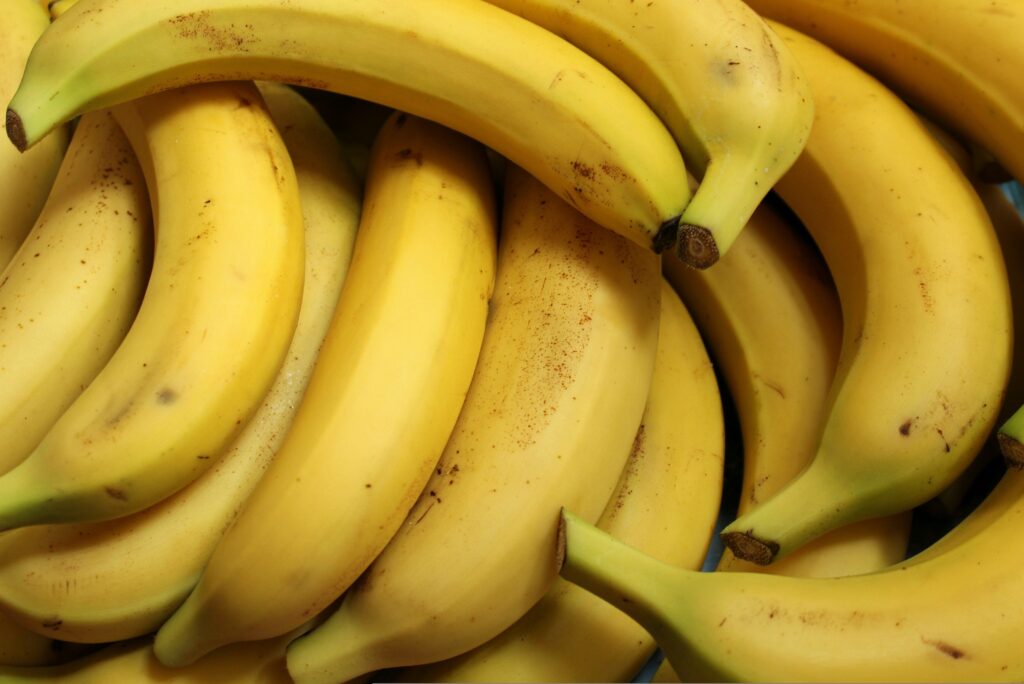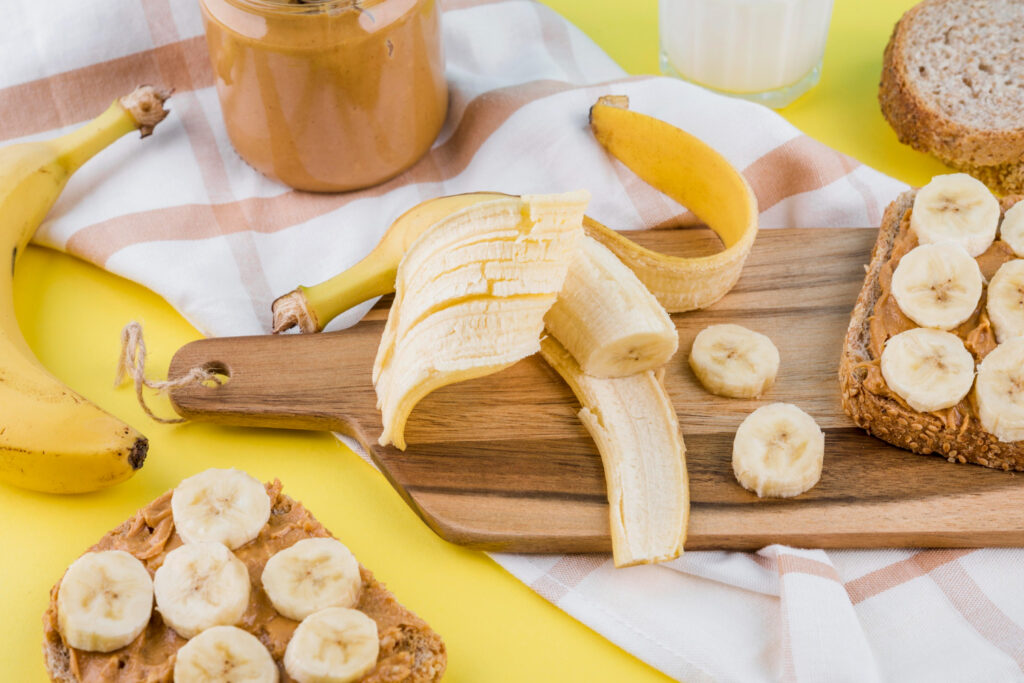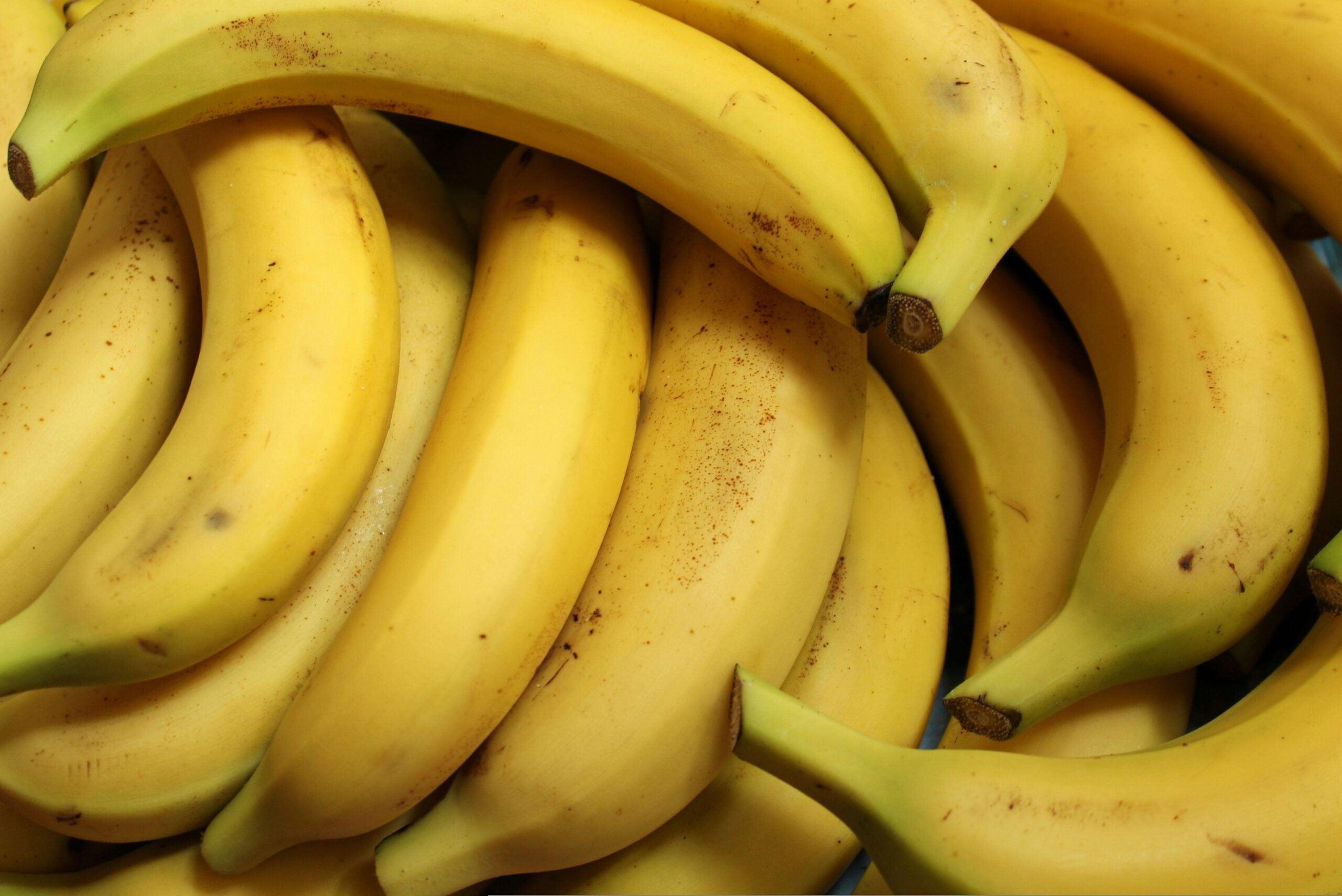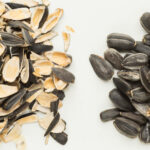
Overview
Bananas are one of the most widely consumed fruits in the world, known for their sweet taste, portability, and versatility. They offer an array of health benefits that support everything from heart and digestive health to mood and muscle function. In this article, we’ll explore the impressive nutritional profile of bananas, their health benefits, possible risks, and tips to make the most of this nutritious fruit
Table of Contents
Nutritional of Bananas
Bananas are loaded with essential nutrients that make them an ideal snack or ingredient. Here’s what you’ll get in a medium-sized banana:
- Calories: Approximately 105 calories, making bananas an energizing, low-calorie snack.
- Carbohydrates: Rich in natural sugars like fructose and glucose, bananas provide a quick and sustainable energy boost.
- Fiber: About 3 grams per banana, supporting digestive health and helping maintain blood sugar levels.
- Vitamins: Bananas are high in vitamin C (for immunity) and vitamin B6 (for brain and nervous system support).
- Minerals: They are especially rich in potassium, vital for heart health, blood pressure regulation, and muscle function.
Related : Best Times to Eat for Weight Loss
Health Benefits of Bananas
Heart Health Support
Bananas are well-known for their high potassium content, with one medium banana containing about 9% of the recommended daily intake. Potassium helps maintain normal blood pressure by balancing sodium levels, which reduces strain on the cardiovascular system and lowers the risk of heart disease and stroke. The fiber in bananas also helps lower cholesterol, adding another layer of heart protection
Digestive Health Boost
The fiber in bananas, especially a type called pectin, helps support regular digestion and may alleviate symptoms of constipation. Bananas also contain resistant starch (especially when slightly underripe), which acts as a prebiotic, promoting the growth of beneficial gut bacteria. This combination helps improve gut health and reduce bloating
Related : Baking Soda Water Benefits Risks and Everyday Uses
Energy and Workout Recovery
Due to their natural sugars, bananas provide an immediate energy source, making them a popular snack for athletes and fitness enthusiasts. The carbohydrate content replenishes glycogen stores, while potassium helps reduce muscle cramps and speeds up post-exercise recovery.
Mood and Mental Health Support
Bananas contain tryptophan, an amino acid that plays a role in serotonin production, the hormone associated with mood regulation and feelings of well-being. Additionally, vitamin B6 in bananas supports the nervous system and helps prevent mood swings, potentially offering natural relief for symptoms of depression and anxiety.
Weight Management Aid
With only about 105 calories per medium banana, these fruits are low-calorie and high in fiber, making them satisfying and helpful for those managing weight. The fiber promotes a sense of fullness, reducing the urge to snack on unhealthy foods. Because bananas are naturally sweet, they can also curb cravings for sugary treats, supporting healthier dietary choices.
Immune System Support
Bananas contain vitamin C, which strengthens the immune system by fighting free radicals and protecting cells. Vitamin C is essential for immune defense, skin health, and wound healing, making bananas a great choice for supporting overall immunity
Related : Health Benefits of Drinking Lemon Water
Bone Health Benefits
While bananas don’t contain much calcium, they do offer other nutrients that promote bone health. Potassium in bananas helps reduce calcium loss in urine, which may enhance bone strength over time. Additionally, magnesium in bananas supports bone formation and maintenance, further contributing to skeletal health
Potential Risks and Considerations

While bananas are generally safe for most people, there are a few considerations to keep in mind:
- Blood Sugar Levels: Ripe bananas are high in natural sugars, which can cause blood sugar spikes. People with diabetes should enjoy bananas in moderation and pair them with protein or fat to slow sugar absorption.
- Allergic Reactions: Some individuals may be allergic to bananas, especially those sensitive to latex, as bananas contain proteins similar to those in latex. Symptoms of an allergy can include itching, swelling, and digestive discomfort.
- Digestive Issues: Overconsumption of bananas can lead to constipation due to their high pectin content. Eating them in moderation helps prevent digestive discomfort.
- Kidney Health: People with advanced kidney disease may need to limit potassium intake, including that from bananas, as excess potassium can be harmful when the kidneys are unable to filter it out
Related : Anti-Inflammatory Foods
Tips for Enjoying Bananas
- Pair with Protein or Healthy Fats: To avoid a rapid spike in blood sugar, pair bananas with a source of protein or healthy fat, such as almond butter or Greek yogurt. This makes for a more balanced and satisfying snack.
- Choose the Right Ripeness: Green bananas are higher in resistant starch, making them better for digestive health, while yellow or slightly spotted bananas are sweeter and better for immediate energy.
- Try Frozen Bananas in Smoothies: For a creamy texture and natural sweetness, freeze bananas and add them to smoothies. Frozen bananas are also a great base for healthy ice cream alternatives.
- Add to Baked Goods: Mashed bananas add natural sweetness and moisture to baked goods like muffins, pancakes, and breads, reducing the need for added sugar and fats.
- Include in Pre-Workout Snacks: Eat a banana about 30 minutes before a workout to fuel your body and reduce the risk of muscle cramps. Pairing with a handful of nuts can provide sustained energy
The Takeaway
Bananas are not only delicious but also a nutrient-dense fruit that offers numerous health benefits, from supporting heart and digestive health to boosting mood and aiding workout recovery. While they come with a few considerations, such as managing blood sugar and monitoring potassium intake, bananas can be enjoyed as part of a balanced diet. By incorporating them into various meals and snacks, you can reap the full range of their health benefits while keeping any risks in check
Related : How to Boost and Balance Your Metabolism Naturally
Enjoy bananas in moderation, pair them with other nutritious foods, and make them a regular part of your diet for an easy, natural way to support your health and well-being
Frequently Asked Questions
- Are bananas good for heart health?
Yes, bananas are excellent for heart health due to their high potassium content, which helps regulate blood pressure by balancing sodium levels in the body. They also contain fiber, which can help lower cholesterol levels, reducing the risk of heart disease.
- Can people with diabetes eat bananas?
People with diabetes can enjoy bananas in moderation, especially if they choose slightly underripe bananas with less sugar. Pairing bananas with protein or healthy fat, such as nuts or yogurt, can also help slow the absorption of natural sugars, preventing blood sugar spikes.
- How do bananas aid digestion?
Bananas contain fiber, particularly pectin and resistant starch, which support healthy digestion. Pectin helps prevent constipation, while resistant starch acts as a prebiotic, promoting the growth of beneficial gut bacteria for a healthy digestive system.
- Can bananas help with weight loss?
Yes, bananas can aid in weight management due to their low-calorie, high-fiber content, which promotes satiety and reduces the urge to snack on high-calorie foods. Their natural sweetness also helps satisfy sugar cravings in a healthier way.
- Is it safe to eat bananas every day?
For most people, it is safe to eat bananas daily as part of a balanced diet. However, those with certain conditions, like advanced kidney disease, may need to monitor potassium intake and limit banana consumption. Eating bananas in moderation also helps prevent issues like constipation.
- What’s the best time to eat a banana?
Bananas are versatile and can be eaten any time of day. Many people enjoy them in the morning for energy or before workouts for a natural energy boost and to reduce muscle cramps. Pairing them with protein or healthy fat can enhance their nutritional benefits and keep you full longer












